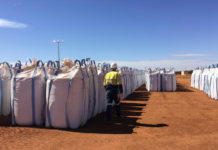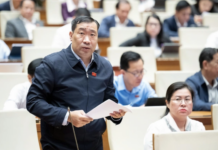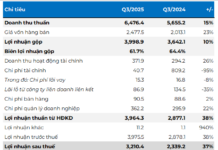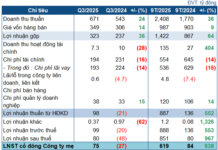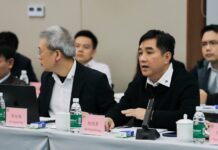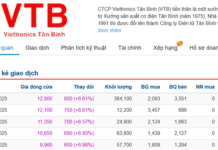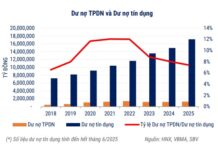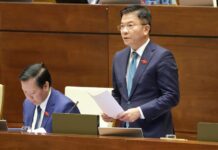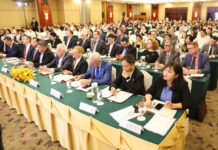Market Mechanisms Need to be Enhanced
Speaking at the Sustainable Development 2024 event on the theme “Accelerating the Net Zero Economy” organized by the Saigon Economic Journal, Dr. Nguyen Quoc Viet, Deputy Director in charge of the Institute of Economic and Policy Research (VEPR), Hanoi, shared that businesses of any size and composition may encounter challenges in the green transition process. For large enterprises, the challenge lies in the inadequacy of the legal framework.
In addition, there is overlap and a lack of unity among government ministries and sectors. “Each ministry feels the need to get involved and accelerate their efforts, which leads to interference. As a result, the processes have not been simplified into a unified procedure,” he said.
Another issue is the discrepancy between the high demands and requirements set by all ministries and the low awareness and initial actions of businesses, creating a conflict between growth needs and implementation realities. This calls for solutions that align policies with the practical actions of enterprises.
Moreover, the problem stems from the ecosystem, and it cannot be resolved if only a handful of businesses take action. “It’s like farmers’ habits of growing two rows of vegetables and raising pigs in two separate pens,” Mr. Viet illustrated. This is followed by technological challenges, leading to financial issues. Finally, there is a need to raise awareness among business owners and employees alike. The legal framework also needs to be synchronized and simplified, and dialogue is essential for businesses from different industries and sectors to adapt.
“I have proposed the idea of labeling CO2 on products to raise awareness, but to implement this, we need more dialogue with businesses,” he said. The measures taken by the government and businesses must strike a balance between education and persuasion, but above all, market mechanisms need to be enhanced. “Otherwise, the problem cannot be solved comprehensively, and we will only have fragmented solutions without widespread impact. Only the market can solve the overall equation,” the expert pointed out.
In the field of wood export, Mr. Tran Quoc Manh, Chairman of the Board of Directors of Saigon Production Trading Development Joint Stock Company (Sadaco), expressed his delight that the state is determined to build a carbon credit market. Although this brings hope to businesses, he admitted that the policy is progressing slowly. “It’s strange that it’s slow even for processing enterprises, including those involved in export processing,” he acknowledged.

Experts sharing at the workshop. Photo: Tu Kinh
|
Need for Reasonable and Simple Guidelines
From a financial perspective, Mr. Darryl James Dong, Senior Representative of the Ho Chi Minh City Office, International Finance Corporation (IFC), emphasized the importance of policies and regulations, which will continue to play a crucial role in the future. Insufficient or confusing guidelines will slow down the entire process.
“We don’t need everything at once, so let’s not complicate matters. If you build a good nest, the eagles will come. Regarding regulations, we don’t need to look too far ahead. We need reasonable, user-friendly, simple, and easy-to-use guidelines. Once the market gains momentum, we can address other issues,” he said. He suggested that Vietnam could adopt a “feeling stones to cross the river” approach and not rush into things.
According to the IFC expert, banks must change their approach and engage with customers to meet their needs. There should be initiatives related to the green transition, such as green bonds and green credit, which provide a budget for the transition process. “Banks cannot stand still and wait for customers; if they don’t move forward, they will fall behind. This is not a typical loan; it’s a completely new activity,” he said. He emphasized the need for bold and innovative actions to keep Vietnam on the right path toward Net Zero.
Mr. Lim Dyi Chang, Director of the Enterprise Customer Block, UOB Vietnam, also highlighted the crucial role that banks will play in the transition process. They should not only provide loans but also monitor the usage of funds to ensure that the money goes to the “right people for the right things.” Additionally, the most significant challenge and barrier are the lack of a clear green classification framework and insufficient incentives for green investments, along with financial risks, especially in terms of technology. According to UOB’s leadership, 50% of Vietnamese companies cite the lack of financial solutions as one of the main obstacles.
Still Hazy
At the workshop, a representative from the operator of Vietcombank Tower in District 1, Ho Chi Minh City, expressed confusion regarding the mandatory greenhouse gas inventory regulation for commercial buildings with an annual energy consumption of over 1,000 tons of oil equivalent. They also inquired about how to address this issue.
From the perspective of a consultant on greenhouse gas inventory evaluation, Mr. Nguyen The Phuong, Director of FPT Digital Transformation Consulting, shared that companies like FPT would assess and inventory the emission status of enterprises to understand their current position.
Mr. Nguyen Vo Truong An, Deputy General Director of the ASEAN Carbon Credit Trading Floor Joint Stock Company (CCTPA), shared a similar view. He stated that consulting units and solutions like CCTPA have the equipment and software to measure and count emissions. They even use AI to analyze which module, process, equipment, or area the enterprise is emitting the most in, to provide solutions to reduce those emissions.
“If enterprises want to buy carbon credits to offset their emissions, they must wait for the legal and policy framework to be in place. In most countries, you can’t just buy as many credits as you want with money; you can only buy 10-20% of the unit’s emissions,” the expert informed. Regarding the supply side, he mentioned that enterprises capable of selling carbon credits are currently quite passive due to the absence of an official exchange and the need to go through brokers.
Tu Kinh
Unlock the Power of Conversion: Transform Obstacles into Opportunities
The green transition is no longer an option but an imperative for businesses worldwide. Yet, this journey is fraught with challenges that must be addressed.
The Green Age of IR: A “Greening” Strategy for Vietnamese Enterprises to Attract Capital
At the IR View seminar on ‘greening’, held as part of the IR Awards 2024 ceremony on the morning of September 24, leaders from VietinBank, PAN Group, Vinamilk, and ACB revealed their secrets to attracting international capital. They shared insights on effective Investor Relations (IR) practices and their strategies for sustainable development in the new era of a green economy.



